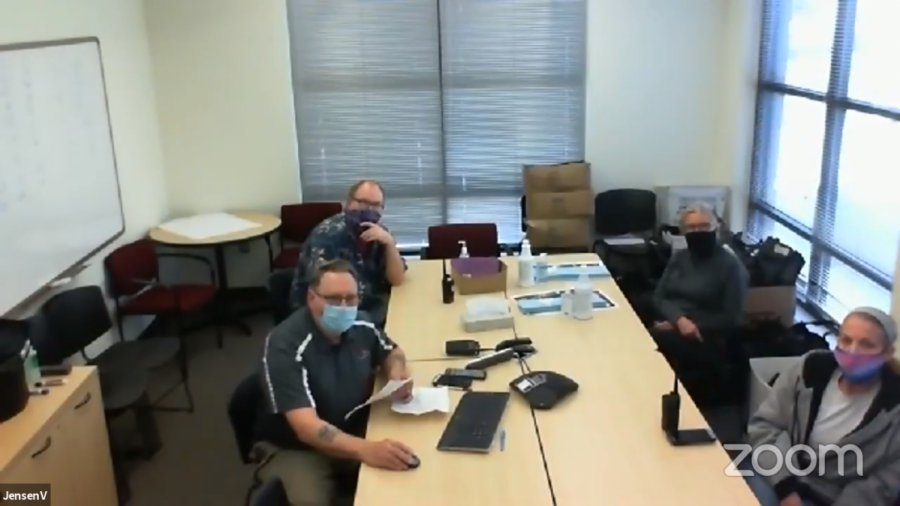Washington Federation of State Employees union representatives speak out about 56 layoffs
Skip Jenson makes public comment via Zoom at the Board of Trustees Oct. 29 meeting.
November 10, 2020
Last week at a Board of Trustees (BOT) meeting, Skip Jenson, a CWU employee and president of the local Washington Federation of State Employees (WFSE) union, spoke out against the 56 layoffs President James Gaudino announced on Sept. 30.
Jenson felt it was his responsibility to speak out in hopes the trustees would understand the impact the layoffs will have on employees.
“It is part of my job to communicate members’ concerns with management,” Jenson said.
During the public comment portion of the BOT meeting, Jenson spoke at length about how CWU is laying off essential employees needed during the pandemic.
“The question is why you have targeted the facilities department when these are your frontline workers?” Jenson asked the board.
Jenson continued by saying these workers perform duties needed to keep the university running.
He also said the school wouldn’t save enough money to decrease their deficit by laying off these employees.
“Some of the laid-off staff are the lowest paid of all employees at CWU,” Jenson said. “The maintenance, custodians and others in facilities are the ones who make this place work.”
According to WFSE, the positions that are being laid off are one furniture repairer, six maintenance mechanics, one warehouse operator, nine custodians, one waste collector, two grounds and nursery services specialists and one equipment technician lead.
BOT chair Ron Erickson responded to Jenson’s comments by thanking him for his feedback.
Erickson said it is always helpful to hear from people inside the university who are impacted by the board’s decisions and that Jenson’s feedback would push them to ask better questions as difficult decisions continue to be made.
WFSE Director of Advocacy Jenny Ho believes more could have been done by CWU before laying people off.
The WFSE contract gives CWU the option to cut hours or furlough employees instead of laying them off. According to Ho, CWU decided against doing so.
“[The university] wouldn’t have to pay [furloughed employees] to come in, but it would at the very least keep our members as employees so they could stay covered by their health insurance, and [CWU] declined,” Ho said.
According to Ho, the university told her that they believe the COVID-19 changes to campus, such as fewer students living in the residence halls, are permanent changes. That is why they decided to lay people off.
“[CWU] provided some reason, but it’s not compelling,” Ho said. “Additionally, it’s not permanent. I can’t say next year students will be back on campus, but I think it’s fair to say the [COVID-19] impacts are temporary.”
Ho said she was aware of some hours being reduced in the summer and about 60 furlough days for some employees, but that the university had the power to extend that.
Under the WFSE contract article 32.5, employees get 90 furlough days, but the university has the option to expand it as necessary in emergency situations.
Ho said the University of Washington chose to utilize this option and she wishes CWU would have done the same.
“The university had reserves and those are for these unique emergency situations,” Ho said. “You would think the university would explore all the options to keep employees who have been there for decades.”
While CWU chose not to furlough employees, they have extended employee benefits for people laid off an additional month.
“Healthcare will end at the end of November, so bless them for doing that and offering any kind of help they can,” Jenson said.
According to Ho, CWU met all contractual obligations for the layoffs.
Under article 32.1 of the WFSE contract, CWU must provide as much notice as possible but not less than 30 days.
They also must provide the opportunity to meet with the affected employees before officially laying them off.

